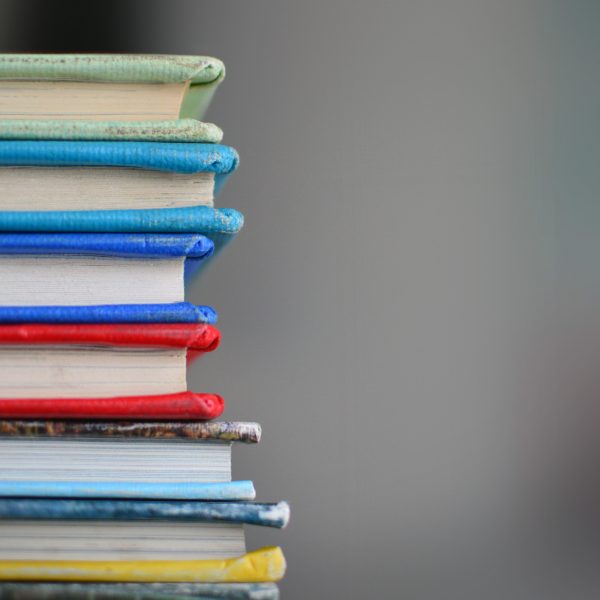MindChamps Australia calls for interdisciplinary approach to boost early childhood literacy

Children need to develop reading strategies in their early years in the same way that they developed speech, through engagement and absorption, a spokesperson for MindChamps Australia has argued, calling for a new interdisciplinary approach for Australia’s early childhood sector to support ‘literacy rich’ learning environments for children before they start primary school.
The provider believes that a lack of ‘literacy rich’ early childhood curriculum methodologies is a key factor leading to literacy challenges in primary school and beyond. In order to correct the deficit, they continued, holistic and interdisciplinary approaches must be taken, drawing on fields of knowledge including education, psychology and neuroscience.
“Before the age of six, the brain is in the critical period of development,” said Mindchamps Dean of Research and Program Development Brian Caswell.
“However, many current programs that focus purely on phonics and grammar are teaching kids (sic.) to recognise patterns, which is only about 20 per cent of authentic, literate reading.”
Unfortunately, he continued, this process becomes synonymous with frustration and failure. Taught in this way, these foundational ‘skills’ are learned in isolation and siloed away from everything else the child is learning, where they should instead be developed naturally by creating an environment that encourages holistic engagement.
To support this perspective, the provider is conducting Australia’s first in-centre research that assesses a four-year-old’s baseline literacy capabilities to provide information on the need for potential early intervention and extra support for children who demonstrate lower levels of pre-literacy development.
The aim is to tackle the issue early and improve foundational skills ahead of entering primary school, an approach that international research strongly indicates will prevent children from falling behind in their literacy and learning long term.
“At MindChamps, literacy is about far more than mere ‘word attack’. It’s about context and understanding; an immersion in the emotion, flow and structure of the language that gives the written symbols purpose, meaning and focus,” Mr Caswell noted.
“Literacy should be a lifestyle, not a sterile lesson to be learned and reiterated. Rather than being a skill you’re learning in isolation, it’s an experience you’re living, that builds neural capacity in disparate, but interconnected, networks across the developing brain.”
MindChamps’ philosophy scaffolds literacy development, drawing on the child’s experience with spoken language and on fundamental concepts shared with other disciplines such as music or numeracy.
Using the Test of Preschool Early Literacy (TOPEL) as a basis, MindChamps’ research will test children’s literacy development. Understanding will be evaluated in a one-on-one session across the following three key areas:
- Print Processes – the ability to understand what a word looks like and what a picture looks like
- Phonological/Phonemic Processes – the ability to detect sounds and the make-up of sounds and to reproduce them
- Vocabulary Processes – the ability to understand and express what is being depicted in an image.
“Fundamental literacy concepts mastered in one discipline help support similar developments in other disciplines,” Mr Caswell argues.
“We have demonstrated, for example, that music, taught with musical literacy in mind, rather than mere performance, promotes a growth in literacy fundamentals that leads to improvements in language and mathematical literacies, without any extra training in either of those disciplines.
“We call this process ‘interdisciplinary cognition’ and it is the key to developing universal multiple literacies in children,” he said.
MindChamps has standardised the reading experience across its centres Australia-wide. The curriculum reflects the provider’s ‘guided immersion’ approach to literacy, with a preschool reading teacher employed as a core member of the faculty. This teacher works alongside the other educators to promote integration and reduce partitioning between learning areas, providing a literacy-rich learning experience throughout the day.
“We founded MindChamps 25 years ago, with the goal of filling the gaps in education,” said MindChamps Founder, CEO and Executive Chairman of MindChamps Australia David Chiem.
“This remains the priority for each of our centres across the globe. Despite being a first-world nation, Australia ranks behind so many countries in terms of literacy standards and is currently performing below its own standards from 20 years ago.”
This statistic, he continued, highlights the significance of these education gaps and why Mindchamps is passionate about closing them.
“We will achieve this by investing heavily in creating programs that are backed by decades of research to help lift literacy standards for Australian children,” Mr Chiem concluded.
Popular

Policy
Practice
Provider
Quality
NSW Government launches sweeping reforms to improve safety and transparency in early learning
2025-06-30 10:02:40
by Fiona Alston

Quality
Provider
Policy
Practice
WA approved provider fined $45,000 over bush excursion incident
2025-07-01 07:00:01
by Fiona Alston

Workforce
Policy
Quality
Practice
Provider
Research
ECEC must change now, our children can’t wait for another inquiry
2025-07-02 07:47:14
by Fiona Alston













